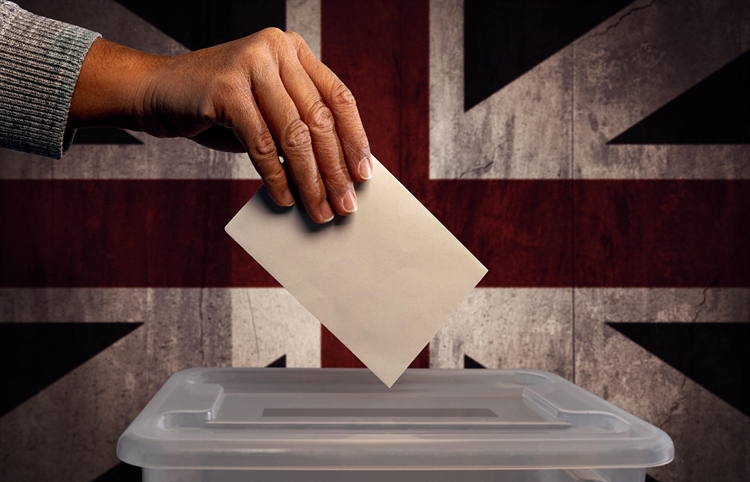Mon 13 May 2024
By Kate Sturdy

This election will be different to any other. Even if there are parallels or lessons in common, no election is the same as any previous one, and it's your role to assume nothing and plan for different possible outcomes.
In my 17 years as a civil service senior leader, I experienced four general elections, and was responsible for coordinating my department policy group's preparation for the latter two. There are three principles I would encourage any leader to have in mind as you get into the informal and then formal pre-election period:
- Create a pre-election mindset
- Focus on how to build trust
- Challenge your leadership
Mindset
It is easy for civil servants to get sucked into the content side of preparation – policy briefings, data packs, finance 101, first-day letters. It's equally as important to spend time creating a pre-election mindset. This election will take place in unique circumstances – any incoming government will face huge expectations as well as major challenges on current international conflicts, tax and spending plans for domestic policy, migration policy and so on. The new government will need to work rapidly to complete its first spending review, and decide on its legislative priorities to secure time in the parliamentary programme. Whatever the outcome, it's possible that the next set of ministers will include some with little experience of government. Equally, that those coming in will be eager to create their stamp with new policies.
One marker that can demonstrate whether civil servants are in the right mindset for the incoming administration is their language. As a matter of fact, civil servants will have got used to talking in terms built up over the last 14 years of Conservative governments, whether coalition or majority. How we talk is an expression of how we think. Every department needs to be on the lookout for the language they are using: both in that fat bundle of written briefings awaiting their new ministerial team, and in initial conversations.
Trust
Another under-estimated pre-election activity is an intentional focus on building trust. As humans, we are primed to show and reciprocate trust towards each other, as one of our core survival mechanisms. It uses a lot of our brain's real estate – not only the basic survival brain, but also more developed functions, showing how much effort we put into trust in all our interactions. When different groups meet for the first time, however, there will be a strong tendency for like to stick with like: so the first meetings of ministers and senior civil servants may well reinforce an "in group/ out group" mentality. In other words: suspicion. Because we can anticipate this as a basic human response, we can also plan for it.
It's perfectly possible that not all new ministers will feel well-disposed towards their civil servants. Depending on the election outcome, they may feel strong disagreement with polices enacted by their predecessors. This is what could lie behind suspicion, or low trust. It's important that in your election preparation, you consider the emotional impact of early meetings, not just the technical content. Where you meet, where you sit around a table, what's visible on the wall, how you come across in your body language: these all influence those critical first impressions from which initial trust can build (or not).
Leadership
I would also encourage all senior leaders who are out front in election preparation to be willing to challenge their own leadership. In such a hierarchical organisation, senior leaders in the civil service can internalise a sense of needing to be right and always knowing what to do. However, it's important to listen and reflect on what you hear from others. Seniority does not mean you have no blind spots. Choosing to model openness to others' ideas and questions, especially from those who have less experience, will help you stay open-minded. Sometimes those who are newer and have less baggage find it easier to see things differently – and this could give you fresh perspective on the department, as it might seem to new ministers. Leaders also need to make sure they look after themselves so that they can remain focused on delivering existing commitments, as well as setting a clear direction for preparation.
Drawing consciously on these three principles will help you and your teams to get ready for the changes ahead. Here are some suggestions on how to put them into action, using different scenarios to model a range of possible election outcomes:
- Spend some time in mixed grade and profession groups identifying deep assumptions i.e. are there some existing policy beliefs that have become ingrained as fact in your department?
- Identify the language markers i.e. are there some words associated with the current regime that stem from policy position, but by now will be so commonplace as to sound neutral?
- Check how these assumptions and language markers are showing up in briefings and information for new ministers: are you inviting or rebuffing trust?
- Decide on the steps you will take to ready yourself, and communicate to your teams, so that you contribute as a leader to successful regime change.
And finally - good luck. There will be any number of twists and turns between now and the new administration being confirmed. Remember to enjoy the experience of this one-off exercise in UK democracy.
Kate Sturdy is a former senior civil servant who now works as an executive coach. To sign up for her course on Preparing for a New Administration, click here.
View all news